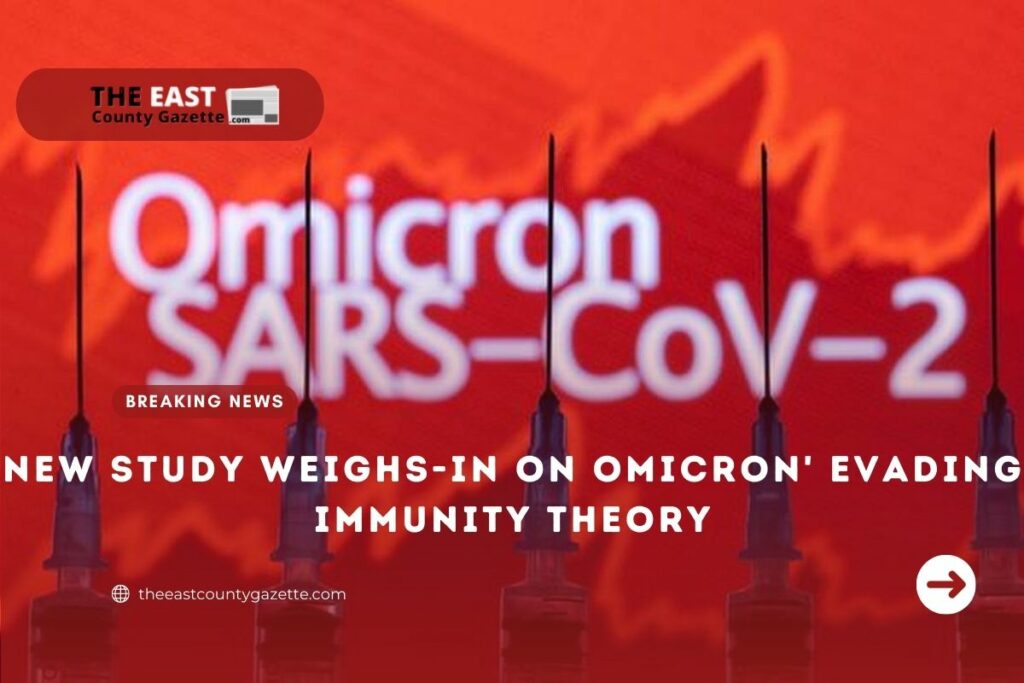In conjunction with researchers at the University of Hong Kong, Columbia researchers have added to evidence that the omicron variant can evade defense against vaccines and naturally occurring infections.
According to the new study, new vaccines and treatments should be developed to anticipate the emergence of new strains of the virus.
Scitechdaily reported that, in a paper published in Nature on December 23, 2021, David Ho, MD, director of the Aaron Diamond AIDS Research Center at Columbia University Vagelos College of Physicians and Surgeons and the Clyde’56 and Helen Wu Professor of Medicine, shared the findings.
“It is not too far-fetched to think that SARS-CoV-2 is now only a mutation or two away from being completely resistant to current antibodies.”
Omicron’s spike protein has been altered in alarming ways that could threaten the efficacy of current vaccines and therapeutic antibodies.
Omicron Neutralization
Vaccinated antibodies were tested in a new study to determine whether they could neutralize the omicron variant in laboratory tests conducted against live viruses and against pseudoviruses modeled after omicron in the lab.
The antibodies from people who had been vaccinated twice with the top four vaccines, such as Moderna, Pfizer, neutralized the omicron variant less effectively than the ancestral virus. Individuals who had previously been infected had even less likelihood to neutralize Omicron too.
“Even a third booster shot may not adequately protect against omicron infection, but of course it is advisable to get one, as you’ll still benefit from some immunity.”
Even those who received a booster shot of either mRNA vaccine demonstrated protection and then diminished neutralizing activity against omicron after receiving the booster shot.
“The new results suggest that previously infected individuals and fully vaccinated individuals are at risk for infection with the omicron variant,” Ho stated.
“Even a third booster shot may not adequately protect against omicron infection, but of course, it is advisable to get one, as you’ll still benefit from some immunity.”
According to these results and early epidemiological data from South Africa and the U.K., two doses of vaccines have significantly reduced efficacy against symptomatic disease than against the omicron variant.
Among the four new spike mutations discovered by Ho’s lab, the four improve the virus’s resistance to antibodies.
Omicron is Not Neutralized by Most Monoclonal Antibodies
Many individuals can be prevented from developing severe COVID with monoclonal antibodies if they are administered early in the course of infection. However, the new study indicates that the most widely used therapies and most therapies in development are far less effective against omicron, even when they do work.
Only one monoclonal antibody (Brii198 approved in China) demonstrated significant activity against Omicron in neutralization studies. Minor forms of omicron are completely resistant to all antibodies currently used in clinical practice. Omicron has now become the most successful “escapee” from neutralization to date, according to the authors.
Besides discovering four new spike mutations in omicron, Ho’s team also discovered these four additional spike mutations helped the virus escape antibodies. New strategies to combat this strain should be informed by this information.
What the Future Holds?
According to HO, scientists will have to devise vaccines and treatments that can anticipate the virus’s evolution in order to fight it off effectively.
“It is not too far-fetched to think that SARS-CoV-2 is now only a mutation or two away from being completely resistant to current antibodies, either the monoclonal antibodies used as therapies or the antibodies generated by vaccination or infection with previous variants,” Ho added.

